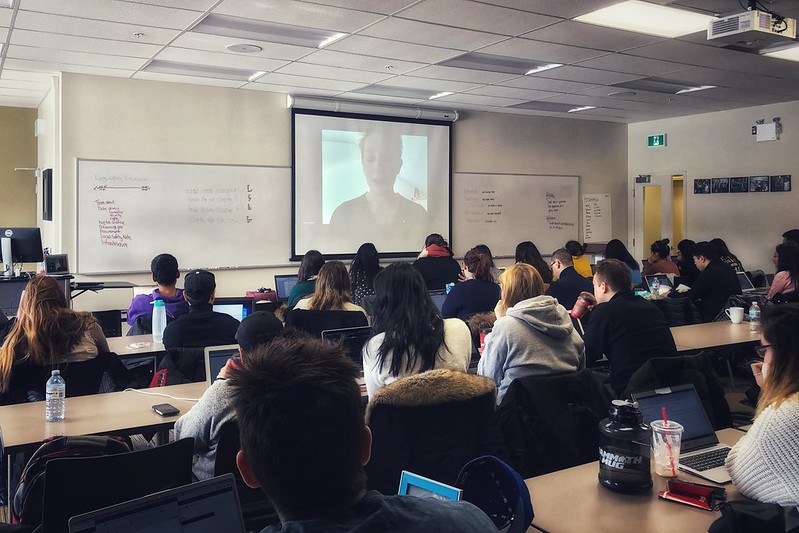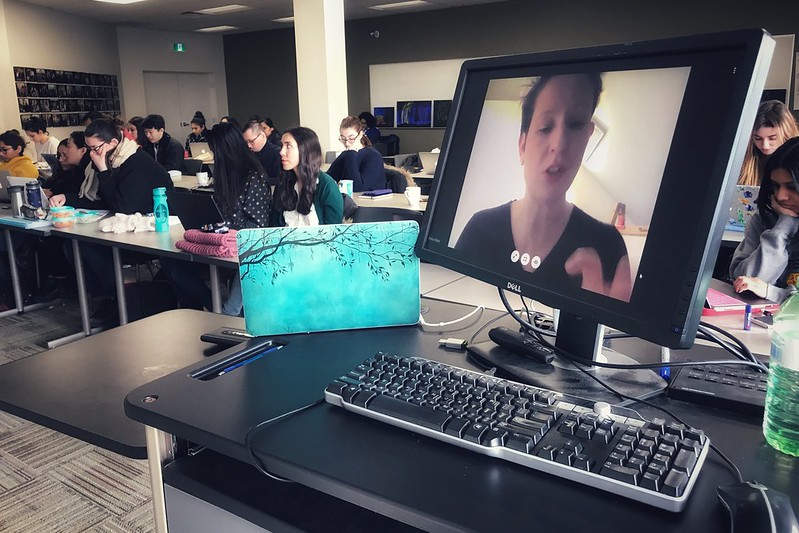Government in a Digital Era: Module 5
From January to April 2019, I’m teaching the “Government in a Digital Era” course as part of the Masters of Public Service program at the University of Waterloo.
I’ve had a few people ask me about the course—what we’re learning, what we’re reading, how the classes are going—so I thought I’d share some information about each module that we cover in the class. Today, I’m sharing the course overview from our fifth module, as well as a link to some of the reflections that the students have done.
Module 5: Regulating the Digital Economy
It’s not just our relationship to government that has changed in a digital era: it’s our relationship to every other facet of our lives. With companies like Apple, Amazon, and Facebook being among the most profitable and influential organizations in our global economy, government needs to transform the way it supports, regulates, and influences the digital economy and the impact that it has on all our lives.
In this module, we will focus on two key areas: how to approach the regulation of the sharing economy, and how to approach regulating an economy based on the collection, use, and sale of personal and private information.
Guest Lecture: Bianca Wylie, Senior Fellow, Centre for International Governance Innovation
Learning Outcomes:
- Understand the underpinnings of the digital economy and how they affect citizens, businesses, and government.
- Gain awareness of how approaches to regulation need to change in order to take into account the nuances of the digital economy.
- Critically examine the idea of the digital economy, who it benefits, who it leaves behind, and how government needs to be involved.
Activity:
Think about one part of the digital economy (and these days, almost every part of our economy has a digital facet to it!) that might need regulation and assess the following four questions:
- What regulation already exists that needs updating?
- When should those regulations be updated?
- How (using what kind of models) can the regulations be updated?
- Where do we go from there? How do we make it sure it stays current?
Resources and Reading:
- Why Amazon is eating the world, Zack Kanter
- Watched and Not Seen: Tech, Power, and Dehumanization, Lorraine Chuen
- Digital Government Doesn’t Equal Democratic Government, Amanda Clarke
- Permissionless Innovation, Adam Thierer
- We’re building a dystopia just to make people click on ads, Zeynep Tufekci
- Surveillance Capitalism and the Prospects of an Information Civilization, Shoshanna Zuboff
- The Age of Surveillance Capitalism, Shoshanna Zuboff
- Liberty in Cyberspace, Lawrence Lessig
- Pathetic Dot Theory, Lawrence Lessig
- Deep Mind: Royal free deal is cautionary tale for healthcare in the algorithmic age, Julia Powles
- Tech Platforms and the Knowledge Problem, Frank Pasquale
- Game Plan: Digital Identify for 2019, Tim Bouma
- Privacy as a Public Good, Joshua Fairfield & Christoph Engel
- The future of regulation, Deloitte
- Regulating the digital economy: sandbox thinking, Jessica Rosenworcel
- Beyond Ideology: A Results-Based Approach, John W. Mayo
- Bridging the Knowledge Gap: In Search of Expertise, Beth Simone Noveck
- Democratizing Regulation, Digitally, Cass Sunstein
- Data Governance for a Digital Age (Collection of essays—students are expected to select the essays they feel would be most relevant to their interests.)
Student Reflections
At the start of the course, I asked students to share their reflections on each module, and encouraged them to share them publicly where they felt comfortable. A few of them took me up on the challenge:
- Reflections shared on Twitter: 1, 2
- Reflections shared on blogs: 1, 2, 3, 4, 5
- Reflections shared on Youtube: 1, 2, 3
- A reflection shared on Google Docs
- A reflection shared in the form of a “privacy” map
- And of course, another episode of the class podcast
I’ve encouraged more students to share their thoughts in the open, rather than simply uploading their files. Hopefully, more to come next week!
Photos of the Week
I wasn’t feeling well at all this week, so I didn’t wear a bow tie and instead just opened for a polo shirt and sweater. Instead, I’m just ending this post with some snapshots from the class.

